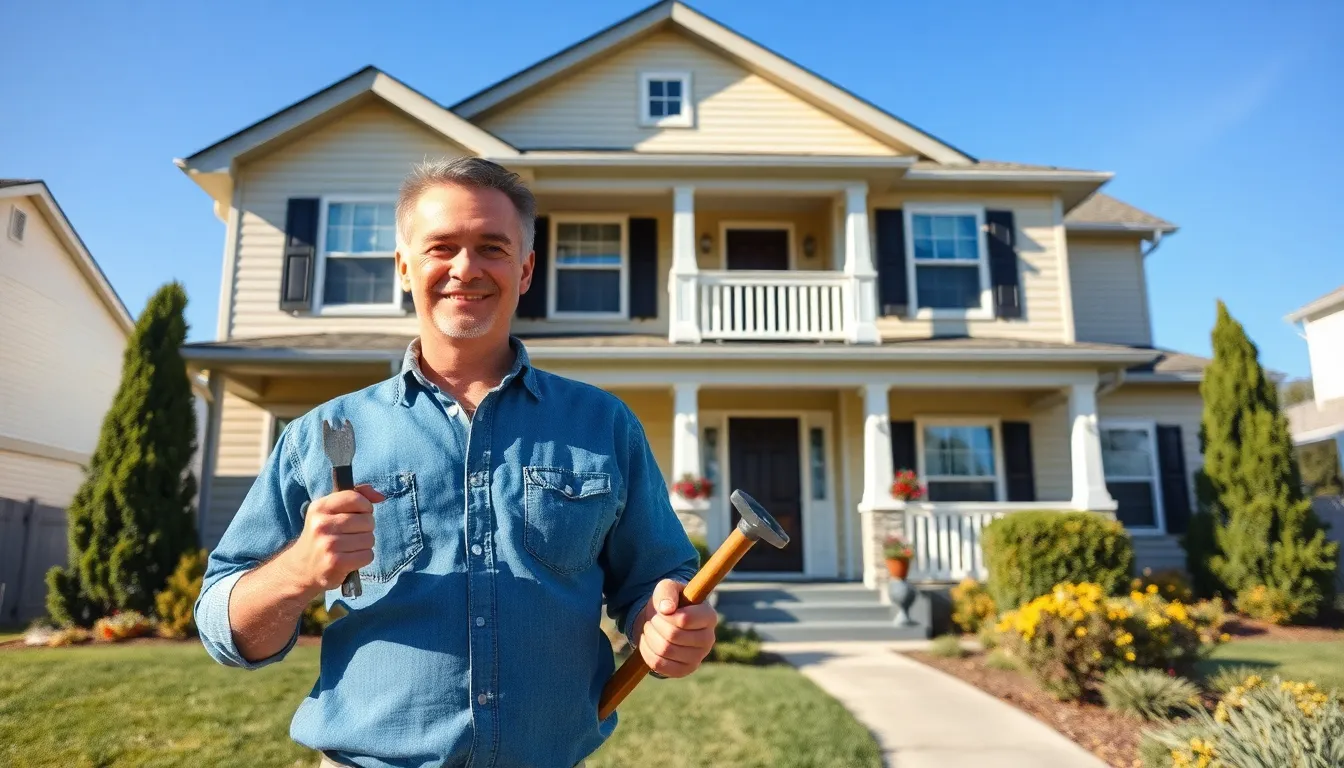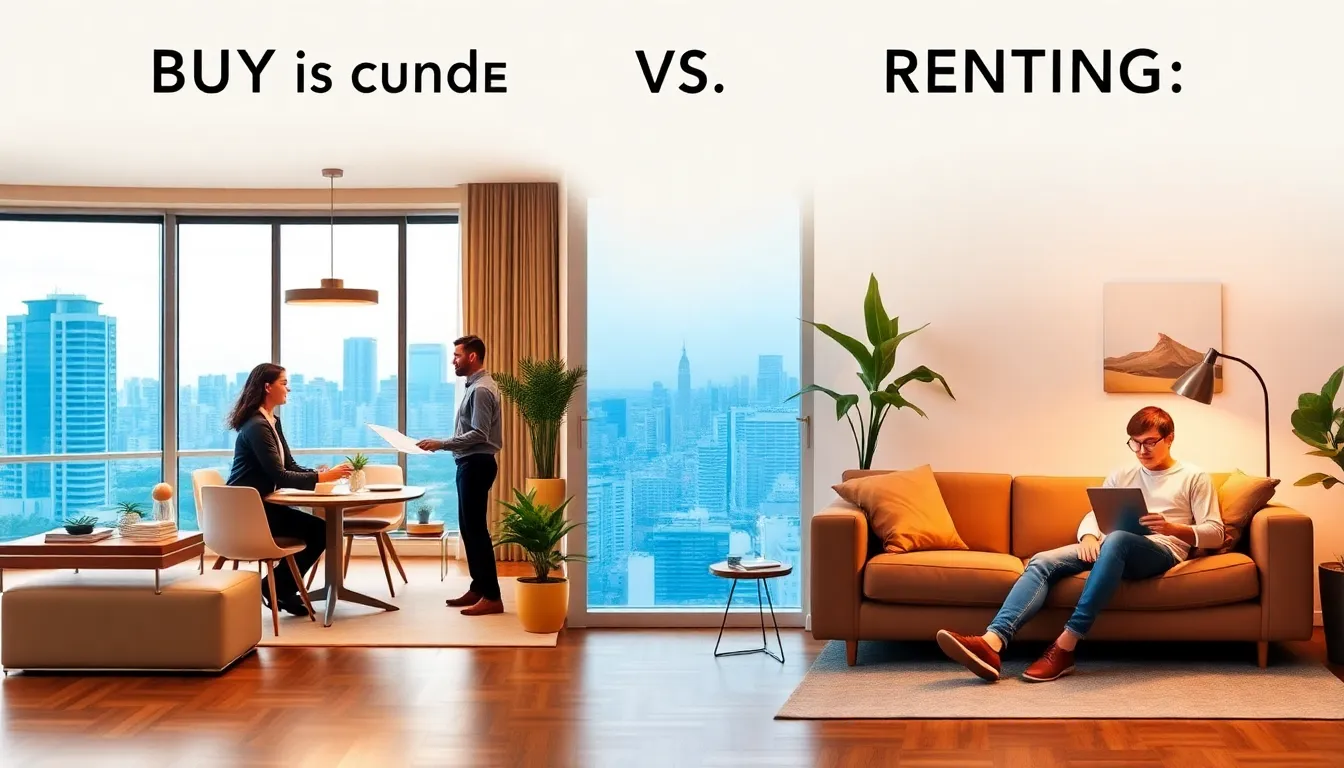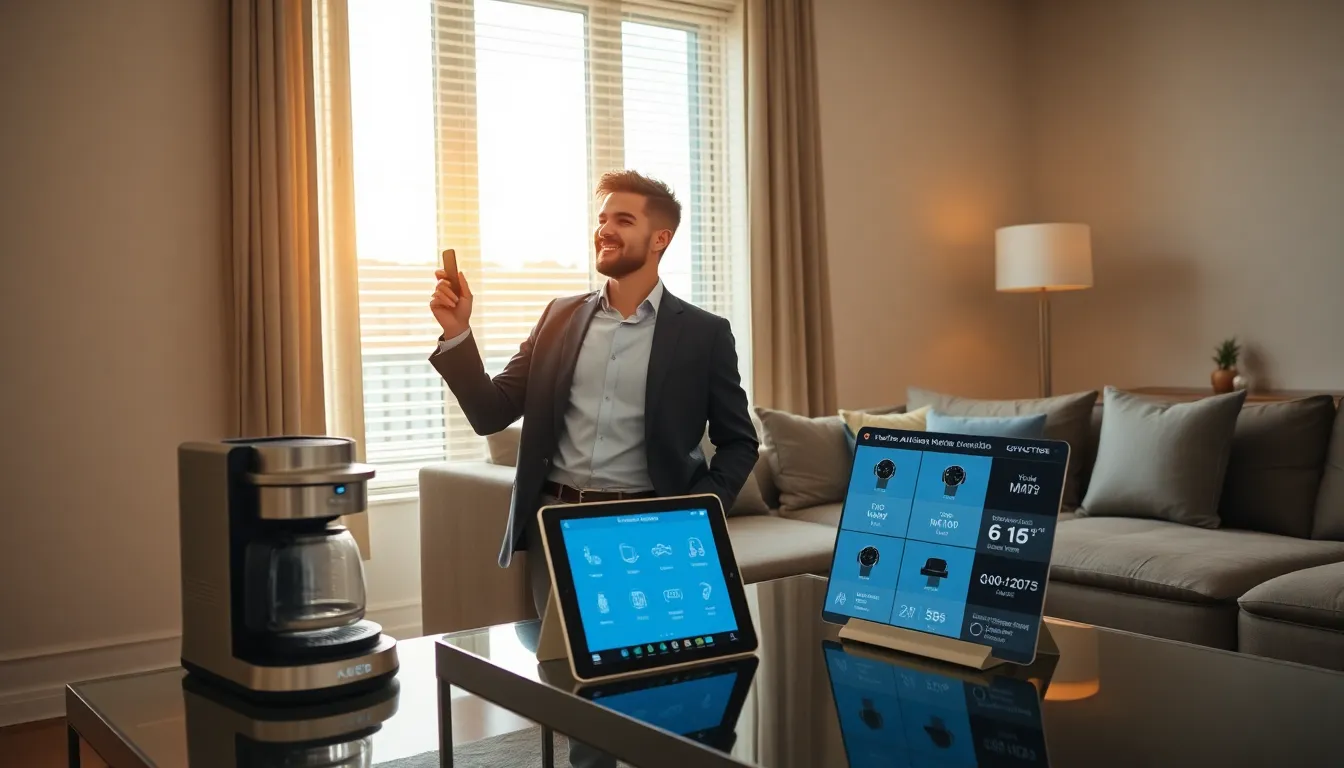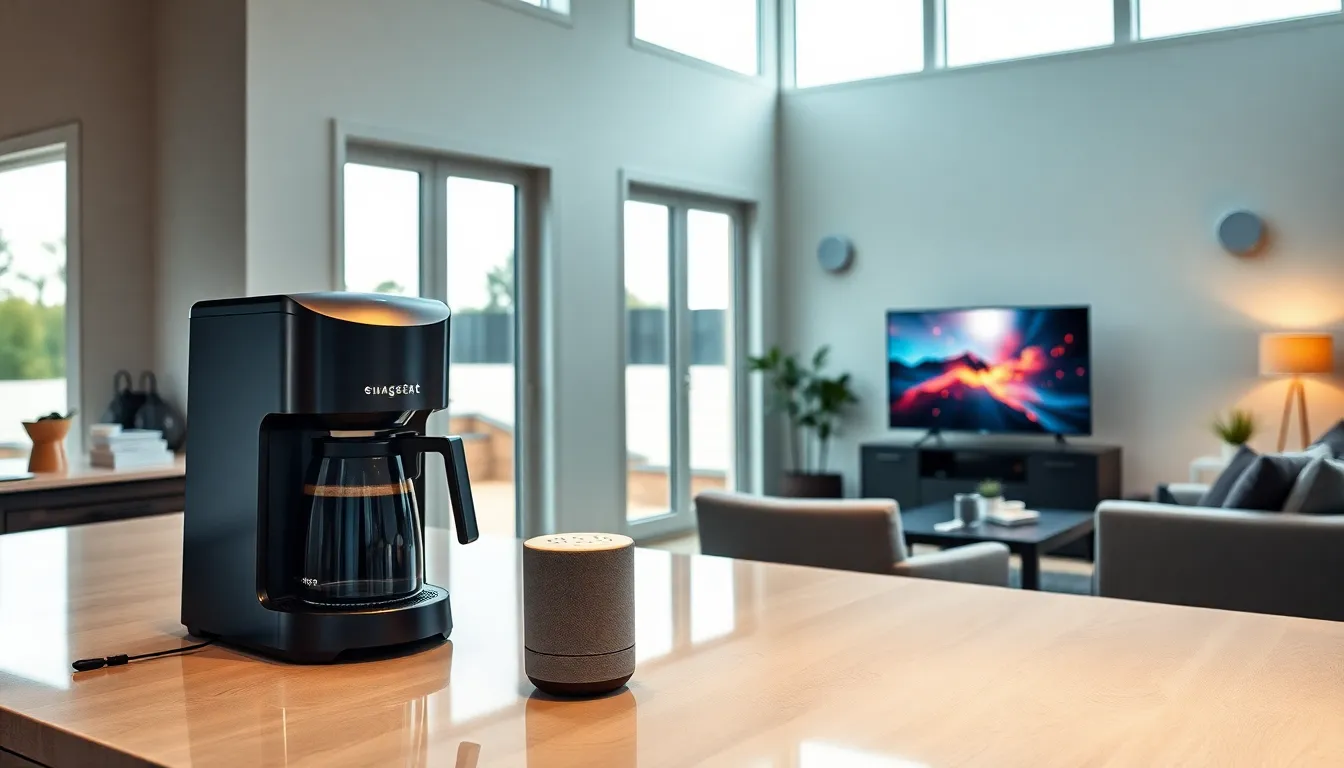When it comes to the age-old debate of owning versus leasing, it’s like choosing between a pet rock and a real dog. Sure, the rock is low-maintenance and won’t chew your favorite shoes, but the dog? It brings joy, companionship, and the occasional muddy paw print on your new carpet. In the world of cars, homes, or even office space, the decision can feel just as daunting.
Table of Contents
ToggleOverview of Owning vs Leasing
Owning and leasing represent two distinct approaches to acquiring property or assets, each with unique advantages and drawbacks. Individuals often explore these options in the context of cars, homes, and office spaces.
Leasing typically requires lower upfront costs, making it accessible for those who prefer short-term commitments. Monthly payments on leased vehicles, for instance, often fall below financing options for ownership. Such arrangements come with maintenance coverage, allowing lessees to avoid unexpected repair costs.
Ownership, on the other hand, denotes long-term investment. Owners build equity over time, enjoying complete autonomy over their assets. Real estate owners, for example, can modify their properties without restrictions imposed by a landlord.
Tax implications also differ; owners may receive tax deductions on mortgage interest or depreciation. Leasing presents fewer financial surprises, providing straightforward budgeting with predictable expenses.
Evaluating lifestyle and financial goals remains essential when considering owning versus leasing. Individuals focused on flexibility and lower initial costs may lean toward leasing. Conversely, those valuing long-term gains and stability might favor ownership.
Both paths carry distinct responsibilities. Understanding the nuances can help individuals make informed decisions tailored to their specific circumstances and preferences.
Advantages of Owning

Owning assets offers numerous benefits, particularly in the realms of long-term value and greater control.
Long-Term Value
Owning a home or vehicle typically results in significant long-term financial rewards. Increased equity builds over time, contributing to personal wealth. For instance, homes appreciate, often growing at an average rate of 3 to 5 percent annually. This accumulation of value diverges from leasing, where monthly payments do not contribute to ownership. Furthermore, owners may capitalize on tax deductions related to property mortgages. Savings from these benefits can enhance overall financial health, making ownership a more fitting choice for individuals committed to long-term investment.
Greater Control
Ownership provides full control over assets, offering the freedom to make modifications. Homeowners can renovate spaces to reflect personal tastes without needing landlord approval. Vehicle owners enjoy the ability to choose upgrades or alterations based on preferences. Flexibility extends to usage as well; owners can determine when and how to use their assets. Also, there are no restrictions on mileage for vehicles, allowing for unrestricted travel. Enhanced control fosters a deeper connection between individuals and their assets, ensuring they fully enjoy the fruits of their ownership.
Advantages of Leasing
Leasing offers several benefits, making it an appealing option for many individuals and businesses. Key advantages include lower upfront costs and increased flexibility.
Lower Upfront Costs
Leasing requires minimal initial investment. Individuals often encounter smaller down payments compared to purchasing. Many leases do not necessitate long-term commitments, allowing for affordable monthly payments. Companies frequently utilize leasing to acquire equipment without straining cash flow. This approach enables access to new models, ensuring reliability and functionality. Overall, lower upfront costs minimize financial risk, making leasing a prudent choice for budget-conscious consumers.
Flexibility
Leasing provides unparalleled flexibility, allowing users to choose newer models every few years. As technology evolves, individuals stay current with the latest features and advancements. Businesses particularly benefit from this adaptability, as they can scale their operations up or down according to market demands. Additionally, leasing accommodates lifestyle changes, making it easier to transition between options. If circumstances change, users can often exit lease agreements without severe penalties. Thus, flexibility remains a significant advantage, appealing to those who prioritize mobility in their possessions.
Disadvantages of Owning
Owning assets comes with notable downsides that demand consideration.
Maintenance Responsibilities
Maintenance responsibilities largely fall on the owner, leading to potential stress and financial strain. Homeowners, for instance, must manage everything from routine repairs to unexpected issues like roof leaks. The costs associated with upkeep can accumulate quickly, especially for older properties or vehicles. Owners also bear the burden of finding and hiring skilled contractors or service providers, which requires time and effort. This ongoing commitment to maintenance can detract from the enjoyment of ownership, turning what should be a rewarding experience into a financial drain.
Market Risks
Market risks present significant challenges for owners. Property values may decline due to economic downturns, making it difficult to sell for a profit or even break even. Owners face the uncertainty of market fluctuations, particularly in real estate, where factors like location and economic shifts influence property values. A vehicle’s value depreciates substantially in the first few years, often leading to losses when reselling. This market volatility affects the overall investment, prompting owners to tread carefully when analyzing their potential return on investment.
Disadvantages of Leasing
Leasing comes with notable drawbacks that can affect long-term financial stability and ownership satisfaction.
Lack of Ownership
Leased assets don’t belong to the lessee, limiting their control over modifications or personalizations. Without ownership, individuals cannot build equity, which decreases their long-term financial benefits. Upon lease termination, all improvements revert to the owner, making the investment feel temporary. Choices in leasing often feel restricted, as lessees must adhere to the lessor’s policies. For instance, customizations in a leased property require permission and can be costly, limiting creativity and personal expression.
Long-Term Costs
Leasing initially seems cost-effective due to lower monthly payments. However, accumulating payments over time can surpass the costs of owning. As lease agreements often last two to three years, continual leasing may lead to perpetual payments without gaining any asset. Early termination fees can arise if the lease doesn’t align with changes in needs or circumstances. Furthermore, increased insurance costs often accompany leased vehicles, adding to the overall expense. Focusing solely on short-term savings can mask the long-term financial implications of leasing decisions.
The choice between owning and leasing ultimately hinges on individual priorities and financial goals. For those who value flexibility and lower initial costs leasing can be an attractive option. It allows for easy transitions and minimal maintenance worries.
On the other hand ownership offers long-term benefits that leasing cannot match. Building equity and enjoying complete control over assets often leads to greater financial security and personal satisfaction.
Evaluating personal circumstances is crucial. Whether one leans toward the ease of leasing or the rewards of ownership understanding these dynamics empowers informed decision-making. Each path has its merits and drawbacks but aligning choices with lifestyle needs will yield the best outcomes.






